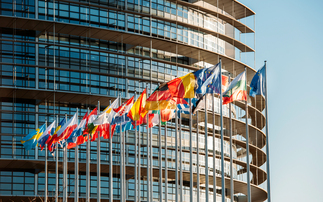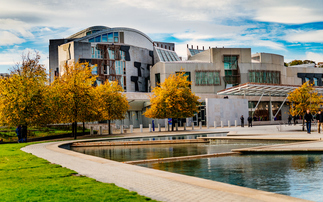PwC's Jonathan Grant looks at the alliances that have formed, and need to be galvanised, in the final days of negotiations
At the half-way point of the climate summit, negotiators handed over a draft agreement to the next phase of the talks. There was a rather self-congratulatory mood on Saturday afternoon despite the fundamental differences that remain in the draft and the fractious negotiations seen earlier in the week. Ministers, who arrive today to manage the closing stages of the COP, will need to find compromises on the critical issues of finance and the mitigation targets* and bridge the divide between developing and developed countries.
Despite the rhetoric from heads of state at the opening ceremony of the summit, their negotiating teams failed to lift off at Le Bourget airport where the event is being hosted. Predictably, there was negligible progress made on paper during the first week. In fact, the gap between developed and developing countries appeared to widen.
The bloc of 'Like-minded developing countries', mostly emerging economies including China, India, Malaysia and Saudi Arabia, were particularly vocal and dominated the interventions of the whole developing country group. This limited progress on nearly all aspects of the agreement - with little consensus found in either the plenary discussions (the ADP contact group) or in the facilitated (spin-off) groups focusing on particular sections or Articles of the agreement.
As is typically the case for week one of a COP, with little to report on the actual negotiations, the news vacuum is filled with announcements by companies and governments including:
Low carbon alliances: Indian Prime Minister, Narendra Modi, launched the International Solar Alliance which includes over 100 countries and unusually business partners such as Areva, Engie and HSBC France. Their aim is to install 175GW of solar capacity by 2022 in primarily tropical countries. At around the same time, another group of governments and investors announced their Mission Innovation, designed to support the development of clean technologies such as innovative energy generation, storage and transport.
The Governor steps in: Mark Carney, Governor of the Bank of England and Chairman of the G20's Financial Stability Board, announced that Michael Bloomberg will head a taskforce to assess the financial exposure of companies to the risks of climate change. The taskforce is expected to recommend principles for voluntary disclosure by companies, so that investors are better informed of climate risks.
The handover of the draft to the French Presidency at the halfway stage was significant as it gives the hosts the authority to manage the talks and help build consensus. Typically at COPs, the negotiators or subsidiary bodies retain control of the text until the last minute, making it hard for the Presidency to exert influence on the direction and conclusion. But the French have managed the job well so far by openly setting out a clear timeframe and approach and providing excellent facilities in the 'blue zone'.
It is encouraging at least that all countries are still round the table. The issues to watch in week two are finance, the mitigation process, loss and damage, short term actions (pre-2020) and the long term targets.
Recently, attention has focused on policy developments and actions in the US, China and India. Perhaps, this week is the EU's opportunity to take the lead and build a 'coalition of ambition', as they did in Durban, including developing countries most vulnerable to the impacts of climate change. The Paris summit will only succeed if countries can bridge the gap between developing and developed.
*Strictly speaking, they are not targets, but 'contributions', and they are not being negotiated in Paris as they are 'nationally determined'. But the contentious point in this section of the agreement is the timing and approach to reporting on national progress and raising ambition in future.
Jonathan Grant is director of sustainability and climate change at PwC.
Follow Jonathan Grant's update from Paris @jg_climate or @pwcclimateready.
This article is part of BusinessGreen's Road to Paris hub, hosted in association with PwC.







